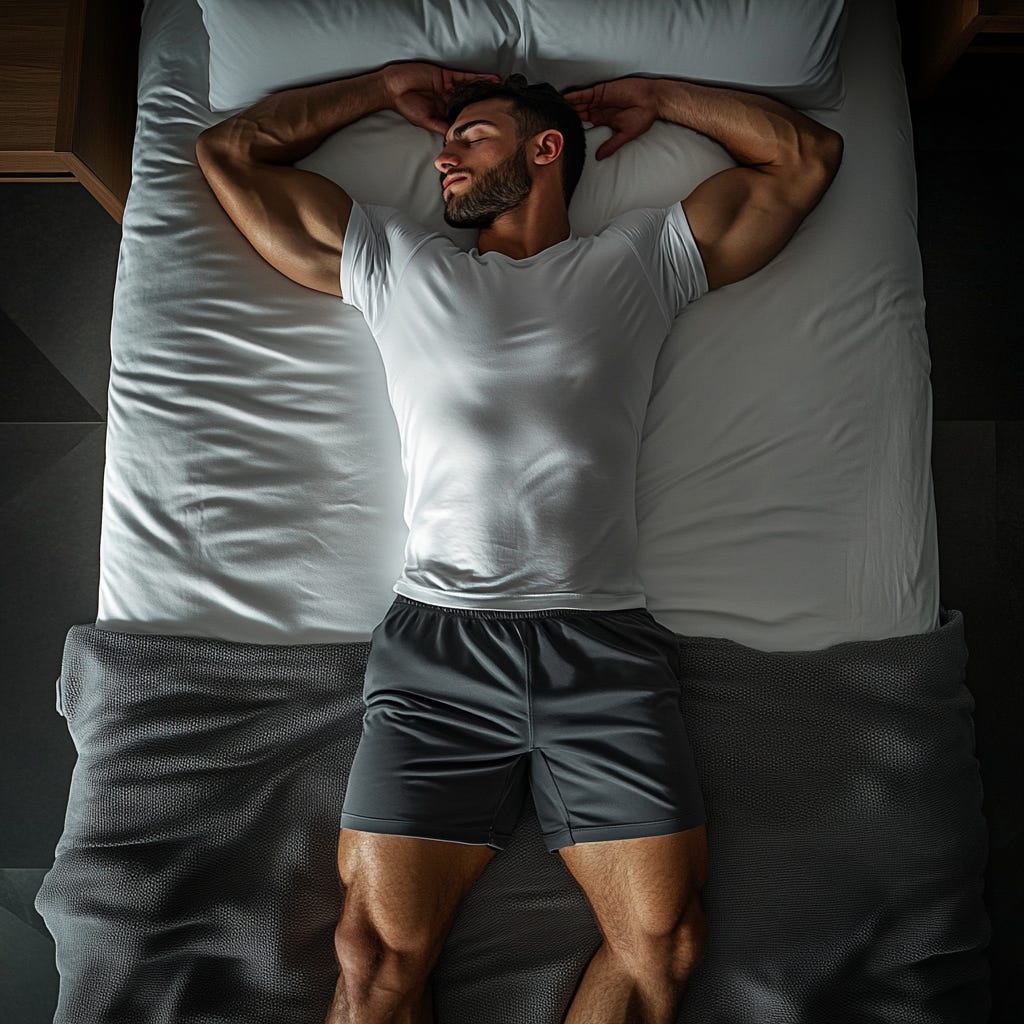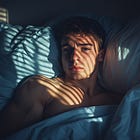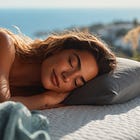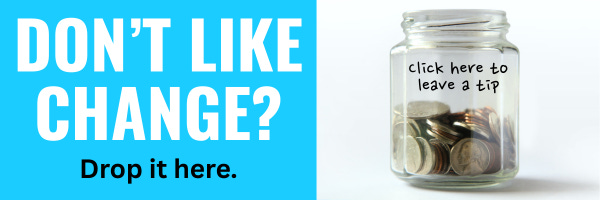Effects of Sleep Deprivation on Sports Performance and RPE
How just a few nights of poor sleep can undo your hardest workouts.
Ever notice how even one night of poor sleep turns your next workout into a grind? This massive analysis of 45 studies reveals why athletes and gym-goers need to treat sleep as seriously as their training splits.
PMID: 40236824
Key points
Partial sleep deprivation (5-6 hrs/night) hurts performance more than total all-nighters
Afternoon workouts show 23% greater performance drops than morning sessions post-sleep loss
Skill-based movements like Olympic lifts suffer 2X more than basic strength exercises
What they tested
Researchers analysed:
Total sleep deprivation (24+ hrs awake)
Partial restriction (3-5 hrs/night for 3+ days)
Circadian disruption (sleep shifted to non-optimal times)
What happened
Strength athletes lost 9% on 1RM lifts after 3 nights of 5hr sleep
Power output dropped 12% in afternoon sessions vs 6% in mornings
Skill errors doubled in technical lifts (cleans, snatches)
Related
Practical Fixes
Protect sleep consistency
90% of performance loss comes from inconsistent bedtimes vs total hours
Schedule heavy lifts before noon
Morning sessions maintain 87% of normal strength vs 74% in the afternoon
Auto-regulate RPE
Add 10% to perceived exertion scores when sleep-deprived
Key takeaways
Sleep debt acts like invisible sandbags – 3 nights at 5hrs sleep = carrying 6.8 kilos extra on your barbell without knowing it. For lifters, prioritising consistent 7-9hr sleep windows matters more than chasing perfect macros or supplements.
Reference
Kong Y, Yu B, Guan G, Wang Y, He H. Effects of sleep deprivation on sports performance and perceived exertion in athletes and non-athletes: a systematic review and meta-analysis. Front Physiol. 2025 Apr 1;16:1544286. doi: 10.3389/fphys.2025.1544286. PMID: 40236824; PMCID: PMC11996801.
You can also find me at dannyleejames.com for more personal stories, training advice and coaching.










